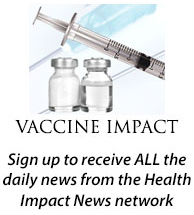By Dr. Mercola
A recent article in the New York Daily News highlighted study findings that a steady consumption of diet soda can result in the same type of tooth decay and erosion as that caused by methamphetamines and crack cocaine:
“The report, which was recently published in the journal General Dentistry, found that a woman in her 30s who drank two liters of diet soda every day for three to five years had eroded teeth similar to those of a 29-year-old meth addict and a 51-year-old longtime crack user. ‘You look at it side-to-side with ‘meth mouth’ or ‘coke mouth,’ it is startling to see the intensity and extent of damage more or less the same,’ said Dr. Mohamed Bassiouny, a professor of restorative dentistry at the Temple University School of Dentistry in Philadelphia.
Diet and regular soda are highly acidic, like methamphetamine and crack cocaine. Paired with poor dental hygiene, the citric and phosphoric acid in soda can lead to substantial damage and decay, Bassiouny said.”
The American Beverage Association (ABA), which represents soft drink manufacturers, issued a statement noting that the woman did not receive dental health services for more than 20 years, and that “To single out diet soda consumption as the unique factor in her tooth decay and erosion — and to compare it to that from illicit drug use — is irresponsible.” The ABA also stated that these findings do not justify never drinking soda again; rather you should be aware that soda is highly acidic, and that you should rinse your mouth after drinking it, and brush your teeth twice a day.
I disagree. Soda, whether regular or diet, has no positive place in a healthy diet. There’s simply no reason to ever give your child soda. To learn more, please see this previous article, where I review my many reasons for this hardcore stance.
As a parent, one of the best gifts you can give your child is a strong nutritional start. The first years of life represent a time of rapid development, during which your child’s language, cognitive, social and motor skills are developed.
During the first three years of life, the brain also grows at its fastest rate, and this represents a crucial window of development during which proper nutrition is essential.
If your child does not get healthy foods (and ideally breast milk) during this time, his future intelligence could be impacted.
A 2010 study revealed just how big an impact a poor nutritional start can have on your kids. Those who ate a predominantly processed food diet at age 3 had lower IQ scores at age 8.5. For each measured increase in processed foods, participants had a nearly two point decrease in IQ.
As you might suspect, the opposite also held true, with those eating healthier diets experiencing higher IQ levels.
As a parent, it is important to carefully consider the types of foods you give your child at home and in restaurants, as research has shown that repeated exposure builds taste preferences very quickly.
Potentially reduced IQ is not the only health risk your child faces if he eats a diet consisting mainly of processed foods and snacks.
A junk food diet can also set the stage for obesity, asthma, eczema, and a variety of allergies, behavioral problems—from hyperactivity to aggression—as well as inflammatory conditions and autoimmune diseases. In fact, many of the top diseases plaguing the United States are diet-related, including heart disease, diabetes and cancer.
The National Institutes of Health even states that four of the six leading causes of death in the US are linked to unhealthy diets.
So the importance of proper nutrition simply cannot be overstated. Yet despite all this knowledge, food and beverage companies and even supplement makers are foisting products on children that are FAR from health-promoting, making your role as an educated parent all the more important…
Girl Scolds McDonald’s CEO
At a recent shareholder meeting, nine-year old Hannah Robertson had some pointed questions for Don Thompson, CEO of McDonald’s Corp.
“Something that I don’t think is fair is when big companies try to trick kids into eating food that isn’t good for them by using toys and cartoon characters,” Hannah told the attendees at the meeting.
“If parents haven’t taught their kids about healthy eating then the kids probably believe that junk food is good for them because it might taste good… I make cooking videos with my mom that show kids that eating healthy can be fun and yummy.
We teach them that eating a rainbow of fruits and veggies makes kids healthier, smarter and happier because that is the truth… Mr. Thompson, don’t you want kids to be healthy so they can live a long and happy life?”
Thompson’s reply? “… [W]e don’t sell junk food, Hannah,” he said. He also denied marketing to children. His response left her unimpressed, and rightfully so, if you ask me. Children are clearly a primary market for McDonald’s. In fact, America’s 52 million kids under the age of 12 represent one of the most powerful markets for American businesses, influencing adult spending worth $700 billion a year.
Children age 2-11 now see an average of more than 10 television food ads per day, and 98 percent of food advertisements viewed by children are for products that are high in fat, sugar or sodium, like McDonald’s and other fast food joints.
This is a Flash-based video and may not be viewable on mobile devices.
Absurd Lies Told By McDonald’s CEO
A related article pointed out the many lies spouted by McDonald’s CEO during this shareholder’s meeting, including but not limited to:
- Claiming “chicken nugget Happy Meals and fat-free milk” are healthy… Chicken McNuggets contain roughly 30 ingredients, including: sodium phosphates, sodium acid pyrophosphate, sodium aluminum phosphate, monocalcium phosphate and calcium lactate. The “fat-free milk” Thompson touted numerous times is actually chocolate milk, containing 10 grams of added sugar…
- “We provide high-quality food, we always have. It’s real beef, it’s real chicken, it’s real tomatoes, real lettuce, real fruit, real smoothies, real dairy, real eggs.” Really? The “real eggs” in an Egg McMuffin are “ prepared with” the following: Liquid Margarine: Liquid Soybean Oil and Hydrogenated Cottonseed and Soybean Oils, Water, Partially Hydrogenated Soybean Oil, Salt, Soy Lecithin, Mono and Diglycerides, Sodium Benzoate and Potassium Sorbate (Preservatives), Artificial Flavor, Citric Acid, Vitamin A Palmitate, Beta Carotene (Color).
- “Globally, we follow guidelines on responsible marketing to children.” … Just last month, McDonald’s was fined $1.6 million by the consumer protection agency in Sao Paulo [Brazil] for violating local laws on targeting children… A report from Yale University found that… “Although McDonald’s pledged to improve food marketing to children, they increased their volume of TV advertising from 2007 to 2009.” Preschoolers saw 21 percent more McDonald’s ads and older children viewed 26 percent more ads in 2009 compared to 2007…
- “And we are not marketing food to kids.” Two words: Happy Meals.
The author, Michele Simon, a public health lawyer specializing in industry marketing and lobbying tactics, suggests adding your voice by signing the petition created by Corporate Accountability International, urging CEO Don Thompson to stop marketing McDonald’s to children.
What’s in That Big Mac?
A cross-sectional study of 1,877 adults and 330 school-age kids who regularly ate at fast-food chains revealed that meals consumed at these restaurants were very high in calories, and that both children and adults underestimated the amount of calories their meals contained. As reported by Time Healthland:
“The investigators collected receipts from the participants in order to calculate how many calories the participants consumed from their meals. They also asked the volunteers to estimate the number of calories they had just ordered. At the time of the study, none of the restaurant chains included calorie information on their menus, as many now do.”
On average, each adult fast-food meal came out to 836 calories, teens’ meals were about 756 calories, and kids consumed a whopping 733 calories in one sitting. But it’s not all about calories per se, because a calorie is NOT a calorie. What matters most is the source of those calories, and this is where fast food fails miserably. The ingredients used simply cannot be compared to whole, unprocessed foods.
As a general rule, “food” equals “live nutrients.” Nutrients, in turn, feed your cells, optimize your health, and sustain life. Obesity, diabetes, high cholesterol, hypertension and heart attacks are hallmark diseases associated with a fast food diet – a CLEAR indication that it does not provide the appropriate nutrition for your body. And, if lack of healthful nutrition isn’t enough of a deterrent, perhaps the fact that some fast foods have been found to be impervious to decomposition, even after more than a decade, will get you to reconsider feeding it to your children.
Thompson denies McDonald’s sells junk food. However, looking at the lists of ingredients in McDonald’s meals, I find this to be an undefendable stance. When you consider the fact that a large number of the ingredients in a fast food meal exist nowhere in nature, but are rather concocted in a lab, it’s just not ‘real food’; it’s junk. As just one example, what kind of bread can lie out for years on end without developing so much as a trace of mold? According to McDonald’s website, their hamburger buns consist of:
“Enriched flour (bleached wheat flour, malted barley flour, niacin, reduced iron, thiamin mononitrate, riboflavin, folic acid, enzymes), water, high fructose corn syrup, sugar, yeast, soybean oil and/or partially hydrogenated soybean oil, contains 2% or less of the following: salt, calcium sulfate, calcium carbonate, wheat gluten, ammonium sulfate, ammonium chloride, dough conditioners (sodium stearoyl lactylate, datem, ascorbic acid, azodicarbonamide, mono- and diglycerides, ethoxylated monoglycerides, monocalcium phosphate, enzymes, guar gum, calcium peroxide, soy flour), calcium propionate and sodium propionate (preservatives), soy lecithin.”
Interestingly, analyzing this list of ingredients offers clues not only for how these buns remain unblemished for years on end, but also to some of the health ramifications you may experience when eating a McDonald’s hamburger. For example, if you’ve ever felt it just “sitting” in your gut like a brick, perhaps the plaster of Paris, aka calcium sulfate isn’t quite as digestible as you’d hoped. Or if you’ve had to run to the bathroom shortly after your meal, perhaps the ammonium sulfate and the ammonium chloride are to blame. Both of these chemicals cause gastrointestinal irritation with symptoms such as nausea, vomiting and diarrhea.
Processed Food Contains Many Potentially Dangerous Ingredients
Fast food hamburgers are not the only type of heavily processed food that is questionable in terms of whether or not it should be considered real food. The following are just a few more examples, but you get the idea – any time a food is heavily processed, it typically ceases to be beneficial for your child’s health. Many processed foods also contain dangerous MSG, to give the otherwise bland mixture some flavor.
- Chicken McNuggets, for example, have made it into mainstream news because of the potentially hazardous additives they contain.
- Soda can contain any number of health harming substances, from high fructose corn syrup (HFCS) to benzene andaspartame.
- French Fries are loaded with the worst types of fat on the planet — typically highly refined and genetically modified omega 6 oils, such as corn, canola, and soybean oils.
- Breakfast cereals are little more than disguised forms of high fructose corn syrup and many are loaded with genetically engineered grains.
Why Do Kids’ Vitamins Contain Aspartame, GMOs, and Hazardous Chemicals?
Another industry that is shockingly irresponsible when it comes to children’s nutrition is that of dietary supplements. Take Flintstones Vitamins, for example, which is marketed as the “Pediatricians’ #1 Choice” of supplement for kids. A recent article by GreenMedInfo.com reveals several of the horrid ingredients in this well-known kids vitamin—ingredients that can have adverse health effects severe enough to warrant a trip to the hospital.
Flintstones Vitamins is produced by the pharmaceutical company Bayer. I’ve revealed some of the many skeletons in Bayer’s closet in the past — including their numerous drug-related lawsuits and intentional selling of AIDS-infected drugs in Europe and Asia. With that in mind, perhaps it’s not so surprising to find that their wildly successful kids vitamin contains some shockingly unhealthy ingredients, including:
- Aspartame, perhaps the most dangerous artificial sweetener on the market, aspartameconverts into toxic methanol and formaldehyde in your body. The featured article lists over 40 adverse health effects of aspartame found in the biomedical literature, including neurotoxicity and carcinogenicity.
- Cupric Oxide, listed as the ‘nutritional’ source of ‘copper,’ supplying “100% of the Daily Value (Ages 4+). However, the European Union’s Dangerous Substance Directive listsCupric Oxide as a Hazardous substance, classified as both “Harmful (XN)” and “Dangerous for the environment” (N).
- Coal tar artificial coloring agents (FD&C Blue #2, Red #40, Yellow #6). All of these are well-known for their adverse effects on children and are banned in certain European countries for this very reason.
- Zinc Oxide. Also widely used in sunscreens, the EU’s Dangerous Substance Directive classifies it as an environmental Hazard, “Dangerous for the environment (N).” It causes the death of phytoplankton (the plankton absorbs it until they burst).
- Sorbitol. Higher amounts have been linked to gastrointestinal disturbances from abdominal pain to more serious conditions such as irritable bowel syndrome.
- Ferrous Fumarate, the form of iron used in Flintstones Vitamins, is actually an industrial mineral not found in nature as food. It is extremely toxic, and accidental overdose of products containing this form is “a leading cause of fatal poisoning in children under 6”.
- Hydrogenated soybean oil. This is one of the most harmful ingredients in processed foods. Part of the problem with hydrogenated soybean oil relates to the health hazards of soy itself. An added hazard factor is the fact that the majority of soybeans are genetically engineered. Hydrogenated soybean oil has been linked to over a dozen adverse health effects, from coronary artery disease to cancer, violent behavior and fatty liver disease.
- Genetically engineered corn starch.According to the featured article, the ‘vitamin C’ listed as ascorbic acid in Flintstones is likely produced from GMO corn. (Bayer’s Ag-biotech division, Bayer CropScience, donated $381,600 to defeat California’s Prop. 37 GMO labeling bill).
Kids Chemotherapy Rebranded as ‘Superformula’
Yet another area where kids are being increasingly targeted for brainwashing is with regards to pharmaceuticals. One of the most shocking and recent examples is the rebranding of chemotherapy as ‘superformula’ for children. As reported by iO9.com:
“Chemotherapy is never fun, but A.C.Camargo Cancer Center in São Paulo is trying to make it easier for children to accept the treatment. They’re rebranding the treatment as “superformula” and using comics to help kids understand chemo…. [T]he cancer center is working with ad agency JWT, which also works with Warner Bros. The idea was to help children believe in the power of chemotherapy to make them ultimately better. They’re not just covering the chemo cases with superhero logos; they’re also giving pediatric cancer patients comic books in which the heroes experience something similar to cancer and must receive a similar treatment formulated by doctors. And in the comics, the cases for the treatment bags look just like the cases the kids get over their own chemo bags.”
How Do You Determine Whether or Not a Supplement Is a Good Choice?
To optimize your child’s health, your BEST solution is to choose the highest quality foods possible, and serve a wide variety of whole locally grown minimally processed organic foods. But how do you pick a high quality supplement, should you or your child need one? For starters, make sure it has the following characteristics:
- It is as close as possible to its natural (whole food) form, and ideally certified organic
- Use independent third-party labs that check the raw materials for contaminants and correct dosage.
- Follows industry standards for quality assurance including ISO 9001, ISO 17025 and Good Manufacturing Processes (GMP) certifications.
- The utmost care has been taken in all phases of its production, from growing its ingredients, to manufacturing, testing for potency and quality control.
- It works! I always try to select from companies that have a long track record of providing high-quality products that produce good clinical results.
Your Child’s Healthy Diet Is Up to You
Children will simply not know which foods are healthy unless you, as a parent, teach it to them. Remember, wholesome food is “live” food, and the hallmark of live food is the fact that it will wilt and decompose. The fact that fast food burgers, buns, and fries do not decompose, even after a decade, is a clear sign that it’s just not real food and serves no beneficial purpose as part of your diet. It’s very simple: Kids need real nutrients, not man-made chemicals that are nonexistent in natural food! These substitutes are NOT equivalent to the real deal.
Food is a part of crucial lifestyle choices first learned at home, so you need to educate yourself about proper nutrition and the dangers of junk food and processed foods in order to change the food culture of your entire family. To give your child the best start at life, and help instill healthy habits that will last a lifetime, you must lead by example. If you’re not sure where to start, I recommend reading my nutrition plan first. This will provide you with the foundation you need to start making healthy food choices for your family.
The simplest way back toward health, for children and adults alike, is to focus on WHOLE foods — foods that have not been processed or altered from their original state; food that has been grown or raised as nature intended, without the use of chemical additives, pesticides and fertilizers. You, a family member, or someone you pay will need to invest time in the kitchen cooking fresh wholesome meals from these whole foods so that you can break free from the processed food diet that will ultimately make you sick.
By doing this, and eating meals together as a family, your children will receive the proper nutrition their bodies need during the important developmental years while also developing a love for whole fresh foods that will last them a lifetime.
Keep Fighting for Labeling of Genetically Engineered Foods
While California Prop. 37 failed to pass last November, by a very narrow margin, the fight for GMO labeling is far from over. The field-of-play has now moved to the state of Washington, where the people’s initiative 522, “The People’s Right to Know Genetically Engineered Food Act,” will require food sold in retail outlets to be labeled if it contains genetically engineered ingredients.
Remember, as with CA Prop. 37, they need support of people like YOU to succeed. Prop. 37 failed with a very narrow margin simply because we didn’t have the funds to counter the massive ad campaigns created by the No on 37 camp, led by Monsanto and other major food companies. Let’s not allow Monsanto and its allies to confuse and mislead the people of Washington and Vermont as they did in California. So please, I urge you to get involved and help in any way you can.
- No matter where you live in the United States, please donate money to these labeling efforts through the Organic Consumers Fund.
- Sign up to learn more about how you can get involved by visiting Yeson522.com!
- For timely updates on issues relating to these and other labeling initiatives, please join the Organic Consumers Association on Facebook, or follow them on Twitter.
- Talk to organic producers and stores and ask them to actively support the Washington initiative.
Read the full article here: http://articles.mercola.com/sites/articles/archive/2013/06/12/children-foods-supplements.aspx
How to Raise a Healthy Child
In Spite of Your Doctor
by Dr. Robert Mendelsohn, MD
Free Shipping Available!












